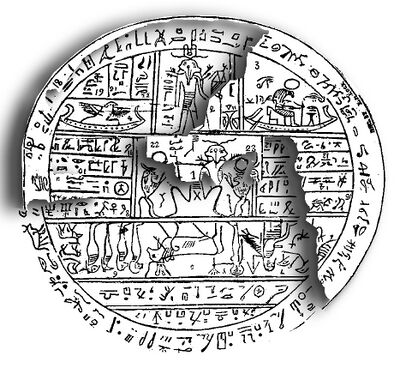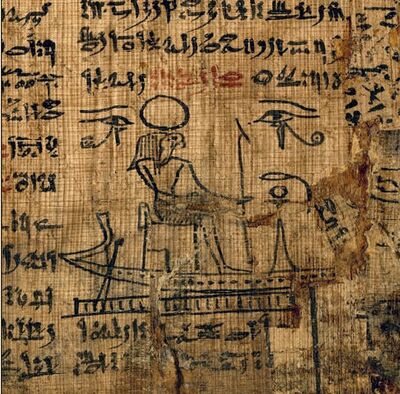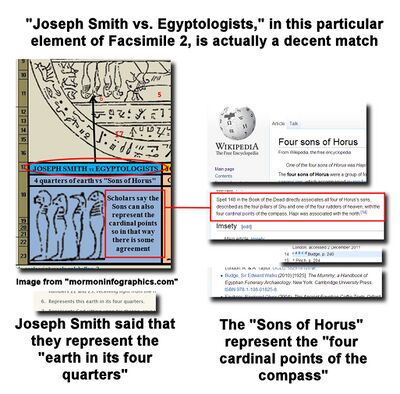
FAIR is a non-profit organization dedicated to providing well-documented answers to criticisms of the doctrine, practice, and history of The Church of Jesus Christ of Latter-day Saints.



The illustration represented by Facsimile 2 (view) is a hypocephalus, a disc made of linen, papyrus, or bronze, covered with inscriptions and images which relate to one of the last spells in the Book of the Dead. The disc was placed under the head (hypocephalus = Greek: "under the head") of the deceased in the belief that the spell would cause the head and body to be enveloped in flames or radiance, making the deceased divine. Joseph Smith's notes to Facsimile 2 identify several figures as representing God sitting in the heavens among the stars and others of his creations.
Criticisms related to Facsimile 2 are related to Joseph Smith's explanations of the individual elements.
Regarding Facsimile 2, it should be noted that portions of the original Facsimile 2 appear to have been missing, and that the missing portions were filled in with characters or images taken from other sources before the image was published in the Times and Seasons. Some material was copied from the Joseph Smith papyri. Among the missing sections may have been the area identified as section #3, which matches a figure which appears on Joseph Smith Papyrus IV. One interesting thing about this restoration is that the figure in the bark boat actually does appear in this section of at least one other hypocephalus.
One critic of Mormonism states, "The following is a side-by-side comparison of what Joseph Smith translated in Facsimile #2 versus what it actually says according to Egyptologists and modern Egyptology." The letter displays a graphic from "mormoninfographics.com" called "The Book of Abraham - Hypocephalus, a funerary amulet," which compares Joseph Smith's interpretations of elements of Facsimile 2 with those provided by Egyptologists. Although this is an anti-Mormon source, the graphic acknowledges that Joseph may have gotten an element correct: "there is some agreement."

FAIR is a non-profit organization dedicated to providing well-documented answers to criticisms of the doctrine, practice, and history of The Church of Jesus Christ of Latter-day Saints.
We are a volunteer organization. We invite you to give back.
Donate Now